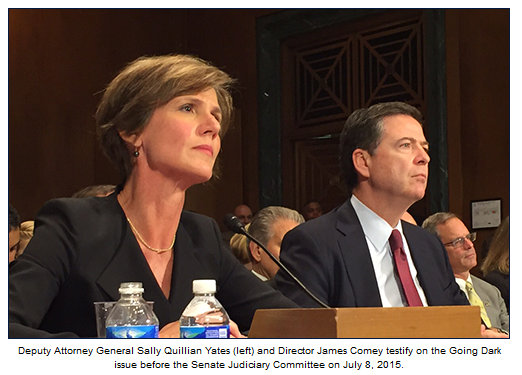Washington, DC…Today, Director Comey appeared before two separate U.S. Senate committees to speak on the Going Dark issue, a growing challenge to public safety and national security that has eroded law enforcement’s ability to obtain electronic information and evidence with a court order or a warrant.
First, before the Senate Judiciary Committee, Comey—along with U.S. Department of Justice Deputy Attorney General Sally Quillian Yates—continued the public discourse on the Going Dark issue, which involves the impact of emerging technologies on the ability of law enforcement to use lawful investigative tools and follow critical leads. “The benefits of our increasingly digital lives,” according to Comey, “have been accompanied by new dangers, and we have been forced to consider how criminals and terrorists might use advances in technology to their advantage.” He said that the FBI is seeing a growing number of cases—from homicides and kidnappings to drug trafficking, financial fraud, and child exploitation—where critical evidence is coming from smartphones, computers, and online communications.
Before the Senate Select Committee on Intelligence, Comey focused specifically on how terrorist groups, including ISIL, use technology such as social media to communicate in order to both inspire and recruit. While some of these conversations take place on publicly accessed social networking sites, others take place over encrypted private messaging platforms. And, as Comey explained, these “changing forms of communication are quickly outpacing laws and technology designed to allow for the lawful intercept of communication content.”
Of the Going Dark issue, Comey and Yates said that the Department of Justice and the FBI must work with Congress, industry, academics, privacy groups, and others to come up with an approach that addresses multiple and competing legitimate concerns. “But,” they added, “we can all agree that we will need ongoing honest and informed public debate about how best to protect liberty and security in both our laws and our technology.”



